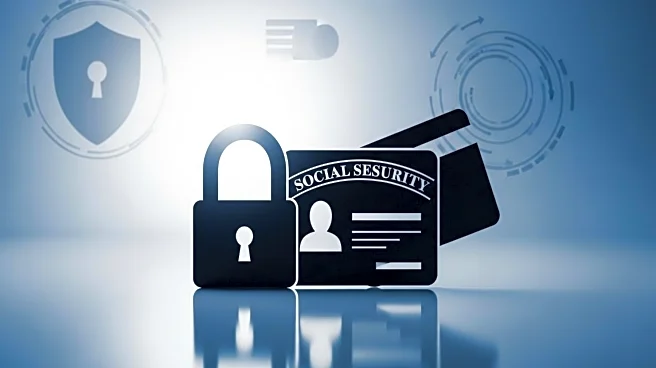What's Happening?
Identity theft remains a significant concern, with Social Security numbers (SSNs) being a prime target for scammers. To combat this, individuals can take proactive measures such as locking their SSNs and implementing credit freezes. Locking an SSN involves contacting the Social Security Administration or using the MyE-Verify online account to block electronic access to the number, preventing unauthorized employment checks or account openings. A credit freeze, on the other hand, restricts access to credit reports, requiring individuals to contact major credit bureaus like Experian, Equifax, and TransUnion. These measures add a layer of security, making it difficult for criminals to exploit personal information, although they may introduce some inconvenience when accessing certain services.
Why It's Important?
The importance of securing SSNs and credit information cannot be overstated, as identity theft can lead to severe financial and personal consequences. By locking SSNs and freezing credit, individuals can protect themselves from employment identity theft and unauthorized credit activities. This is particularly crucial in an era where data breaches are common, and personal information is frequently exposed. While these security measures may require additional steps when accessing services, they provide peace of mind and safeguard against potential fraud. The broader impact includes reducing the overall incidence of identity theft, which can save individuals and businesses from significant financial losses and legal complications.
What's Next?
Individuals who have experienced identity theft or are concerned about potential risks should consider implementing these security measures promptly. As awareness grows, more people may adopt these practices, leading to increased demand for identity protection services. Additionally, government agencies and businesses may enhance their verification processes to accommodate locked SSNs and credit freezes, ensuring legitimate access while maintaining security. Continuous monitoring of financial accounts and credit reports remains essential, and individuals may opt for credit monitoring services for added vigilance.
Beyond the Headlines
The ethical implications of identity theft prevention highlight the balance between security and accessibility. While locking SSNs and freezing credit offer protection, they also restrict access to legitimate services, posing challenges for individuals needing quick verification for employment or benefits. This underscores the need for streamlined processes that maintain security without hindering access. Furthermore, the cultural shift towards prioritizing personal data security reflects growing awareness and proactive attitudes towards safeguarding personal information in a digital age.









